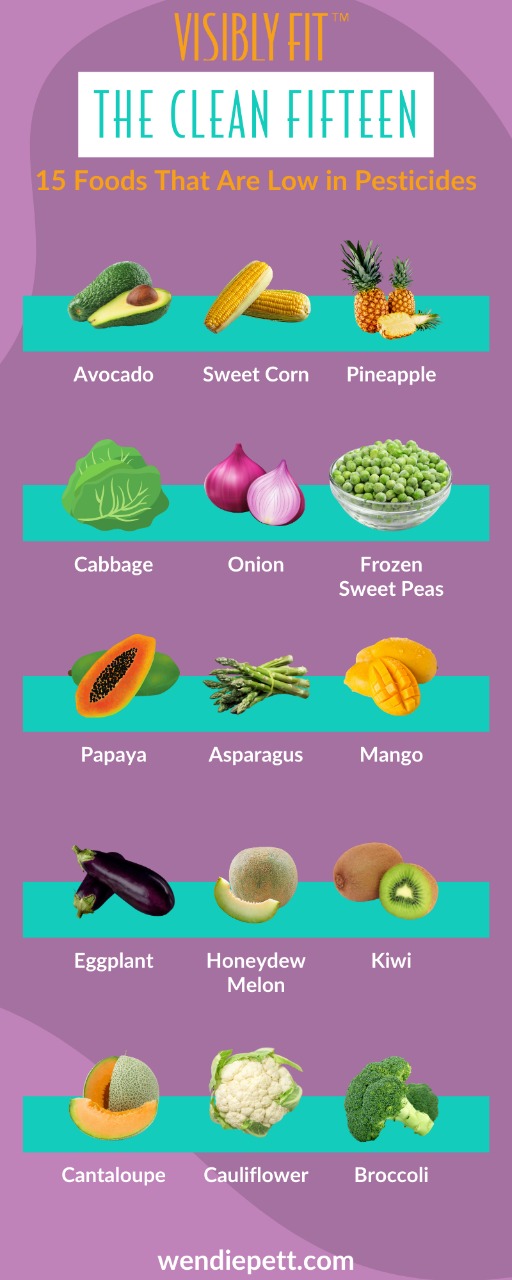Here is a quick “go-to” list of the clean fifteen produce that doesn’t contain as many, or as much, pesticide as the dirty dozen list. I hope this infographic helps you when at the grocery store as a quick reference. It’s always best to go organic when you can, but when you can’t –
this list should ease your mind a bit.

Eating food exposed to pesticides can potentially have various effects on human health. Pesticides are chemicals designed to kill or control pests, but they can also leave residues on food. The potential effects of consuming food with pesticide residues may include:
1. Health Risks: Some pesticides have been linked to health issues, including an increased risk of certain diseases, such as cancer, neurodevelopmental disorders, and reproductive problems.
2. Acute Poisoning: In extreme cases, consuming food with high levels of pesticides can lead to acute poisoning, causing symptoms like nausea, vomiting, dizziness, and in severe cases, even death.
3. Developmental and Hormonal Disruption: Pesticides, particularly endocrine-disrupting chemicals, can interfere with hormonal balance and development, potentially leading to long-term health consequences.
4. Pesticide Accumulation: Over time, exposure to low levels of pesticides through food can result in the accumulation of these chemicals in the body, potentially leading to chronic health issues.
5. Environmental Impact: The use of pesticides in agriculture can harm ecosystems, including the decline of pollinators like bees and other wildlife.
It’s important to note that the severity of these effects depends on factors such as the type and amount of pesticides used, the frequency of exposure, and individual sensitivity. To mitigate these risks, many people choose to consume organic produce and adopt practices to reduce their exposure to pesticide residues.



